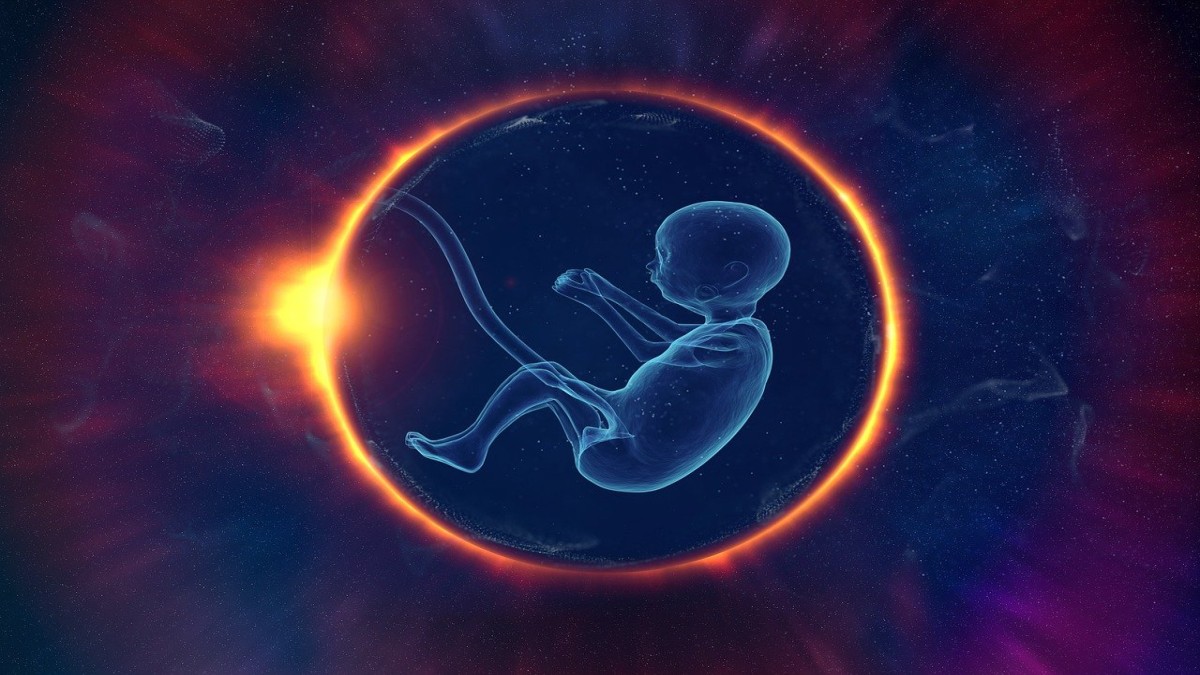It has long been disputed if humans have any influence over when they develop.
A recent study asserts that even though diapause was not used during pregnancy, the body still possesses a dormant capacity for it.
The scientists discovered that they could temporarily stop a fertilised embryo from implanting in the uterine wall until ideal conditions were met by decreasing activity in a specific chain of biological events involved in foetal growth.
By extending the temporal window for evaluating embryo health and increasing the likelihood of implantation in the uterus, researchers believe that this technology could be utilised to improve the success rate of in-vitro fertilisation (IVF).
Let’s take a look.
Embryonic diapause
Certain mammals can modify the time of the normally continuous embryonic development to increase the survival chances of both the mother and the embryo.
This brief pause in development, known as embryonic diapause, usually happens during the blastocyst stage, just prior to the embryo attaching to the uterine wall.
The pregnancy is extended during this interval because the embryo continues to float freely.
When circumstances are right, development can pause for several weeks or months before resuming.
Human diapause
Now, researchers from the Institute of Molecular Biotechnology (IMBA) of the Austrian Academy of Sciences in Vienna and the Max Planck Institute in Berlin have figured out a way to artificially induce a diapause-like state in human stem cells and blastoids, which are lab-grown blastocysts.
Impact Shorts
More ShortsThe study was published last month in the journal Cell.
The findings have shown a novel approach to regulating the development of human pregnancies.
The researchers found that in these stem cell models, manipulation of a particular molecular cascade, the mTOR signalling pathway, generates a dormant state strikingly similar to diapause.
“The mTOR pathway is a major regulator of growth and developmental progression in mouse embryos,” Aydan Bulut-Karslioglu said in a statement.
“When we treated human stem cells and blastoids with an mTOR inhibitor, we observed a developmental delay, which means that human cells can deploy the molecular machinery to elicit a diapause-like response.”
This dormant state is characterised by reduced cell division, slower development, and a decreased ability to attach to the uterine lining.
Importantly, the capacity to enter this dormant stage seems to be restricted to a brief developmental period.
“The developmental timing of blastoids can be stretched around the blastocyst stage, which is exactly the stage where diapause works in most mammals,” says co-first author Dhanur P Iyer.
Moreover, this dormancy is reversible, and blastoids resume normal development when the mTOR pathway is reactivated.
The authors concluded that although humans may not use this mechanism when pregnant, they may, like other mammals, have an innate ability to momentarily halt their development.
“This potential may be a vestige of the evolutionary process that we no longer make use of,” co-author Nicolas Rivron of the Institute of Molecular Biotechnology (IMBA) said. “Although we have lost the ability to naturally enter dormancy, these experiments suggest that we have nevertheless retained this inner ability and could eventually unleash it.”
Implications
Learning how to tap into this hidden ability within our cells could have major implications for reproductive health treatments like IVF.
“On the one hand, undergoing faster development is known to increase the success rate of in-vitro fertilisation (IVF), and enhancing mTOR activity could achieve this,” co-author Nicolas Rivron explained in a statement.
“On the other hand, triggering a dormant state during an IVF procedure could provide a larger time window to assess embryo health and to synchronise it with the mother for better implantation inside the uterus,” he added.
It will take further research to hone our ability to control this mechanism and safely induce diapause during IVF, but the researchers are optimistic that this work could lead to advancements in reproductive health treatments.
“This exciting collaboration is a testimony to how complex biological questions can be tackled by bringing together respective expertise,” Heidar Heidari Khoei, a postdoctoral fellow in the lab of Nicolas Rivron and the study’s co-first author, said.
“I believe this work not only underscores the importance of collaboration in advancing science but also opens up further possibilities for understanding how various signals are perceived by cells as they prepare for their developmental journey.”
With inputs from agencies


)

)
)
)
)
)
)
)
)



